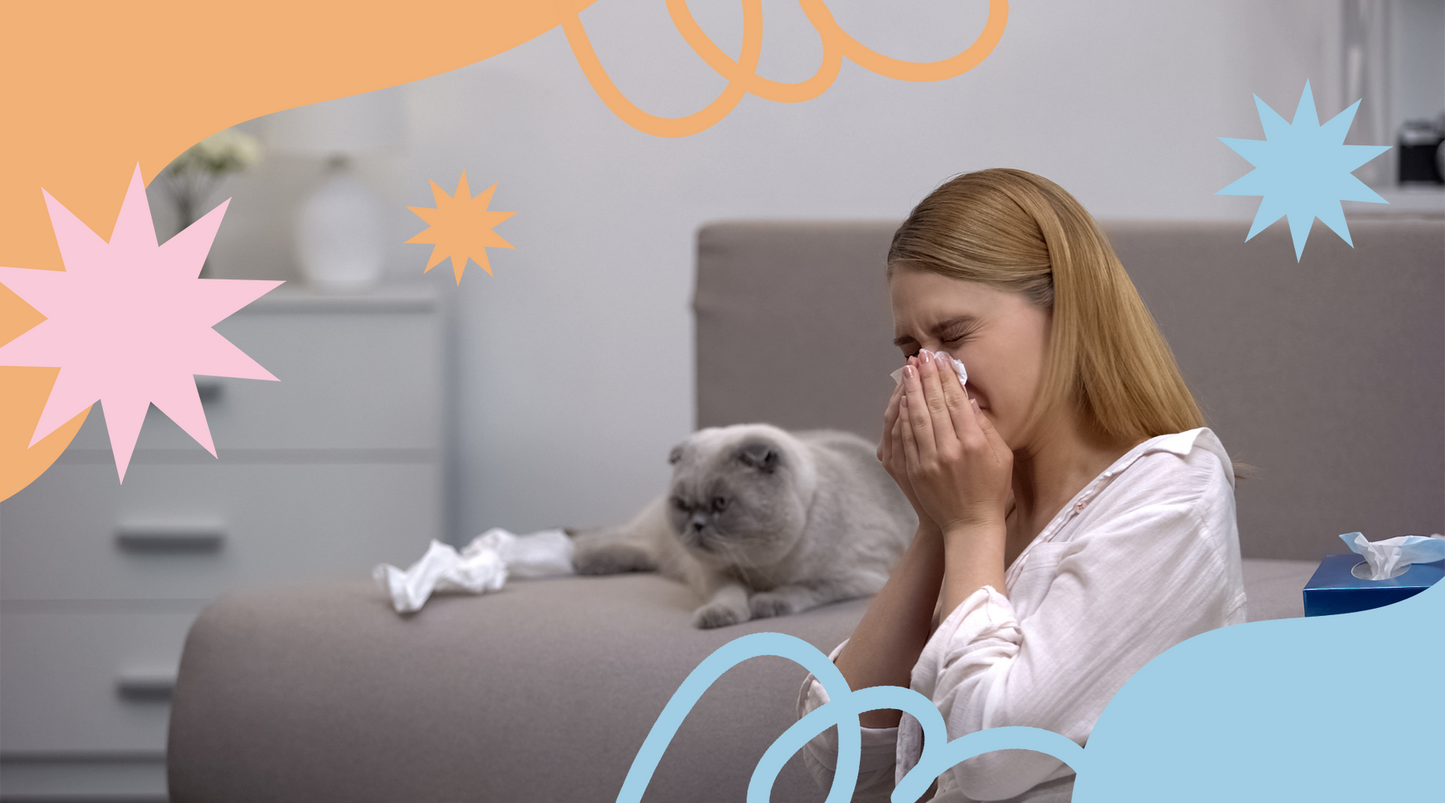
Are you a cat lover who sneezes at the mere thought of a feline friend? You're not alone. Many people who are allergic to cats long for their companionship, but worry about their body's reactions. This article is worth reading because it explores the best hypoallergenic cat breeds that produce fewer allergens, making them suitable for those with allergies.
What Causes Cat Allergies? The Surprising Source of Feline Allergens

If you thought the sneezing came from a furry friend that sheds a lot, surprise! Cat hair has almost nothing to do with it. Even if you get a cat that sheds less than other breeds, you may still wind up sneezing, because people are allergic to a protein cats produce.
Cat allergies are caused by a protein called Fel d 1, found in cat saliva, dander, and urine. When cats groom, this protein sticks to their fur. Once the fur dries, tiny particles flake off and become airborne, triggering allergic reactions in sensitive individuals. This allergen is the main cause of allergies in cats, and it's present in all breeds. However, some cats produce less of this protein, making them more suitable for people with allergies.
What Makes a Cat Hypoallergenic? Are any Cats 100% Hypoallergenic?

A hypoallergenic cat breed is one that produces fewer allergens than other breeds. However, no cat is completely hypoallergenic. Compared to other cat breeds, hypoallergenic cats are breeds that produce less Fel d 1 protein, or have a coat that traps the protein, preventing it from becoming airborne. Now let's explore some of the best hypoallergenic cats for people with allergies.
The Best Hypoallergenic Cat Breeds

Fortunately for allergy sufferers everywhere, some breeds are considered hypoallergenic cats! This may not guarantee that you won't have a reaction, but since some breeds produce less dander, or fewer proteins than other breeds, the things that cause allergies, you're better off selecting a breed of cat that will be less likely to trigger pet allergies in the first place.
Are Abyssinian Cats Hypoallergenic?

Abyssinian cats are known for their playful nature and strikingly beautiful, ticked coats. They have less fur than many other breeds, which means they shed less. Less shedding means fewer allergens in the environment. However, Abyssinians still produce Fel d 1 protein, so they may not be the best choice for someone with allergies that are particularly severe.
Are Siberian Cats Hypoallergenic?

Great news; this long haired, beautiful breed might just be the ideal cats for people with allergies. Siberian cats are known to produce less Fel d 1 protein compared to many other cat breeds. This breed, with its thick, luxurious coat, may seem like an unlikely candidate for a hypoallergenic cat, but don't let that fool you. Their fur traps allergens, reducing the amount that becomes airborne. Siberians are also known for their friendly and affectionate nature, making them great companions.
Are Elf Cats Hypoallergenic?

Elf cats are hairless breeds, much like the Sphynx. Their lack of fur means they don't shed dander-filled hair. However, they still produce Fel d 1 in their saliva. Regular bathing can help reduce the allergen levels on their skin. These breeds are also known for their playful and affectionate nature.
Are Sphynx Cats Hypoallergenic?

Sphynx cats are hairless, which means they don't shed dander-filled fur. However, they still produce Fel d 1 in their saliva. Regular bathing can help reduce the allergen levels on their skin. Despite their lack of fur, Sphynx cats are known for their extroverted and friendly personalities.
Are Russian Blue Cats Hypoallergenic?

Russian Blue cats produce fewer allergens and have a dense double coat that traps allergens. They are known for their striking blue coat and green eyes. Russian Blues are also known for their gentle and quiet nature.
Are Devon Rex Cats Hypoallergenic?

Not to be confused with their cousins the Cornish Rex, Devon Rex cats have short, wavy fur that doesn't shed as much as many other breeds. Less shedding means fewer allergens in the environment. However, they still produce Fel d 1 protein, so they may not be the best choice for people with severe allergies. Devon Rex cats are also known for their playful and sociable nature and have narrow faces and large ears. Siamese cat lovers may also find a new best friend here.
Can People Still Be Allergic to Hypoallergenic Cats?

Yes, because no cat is completely hypoallergenic. People can still be allergic to hypoallergenic cats, but the reactions may be less severe or occur less frequently. It's important to spend time with a cat before bringing it home to see if it triggers your allergies.
What Are the Best Practices for Pet Allergy Sufferers?

Allergy sufferers who want to live with cats can take several steps to reduce allergens. These include using air purifiers, vacuuming regularly, washing hands after petting the cat, and keeping the cat out of the bedroom. Regularly bathing your cat can also help reduce the amount of Fel d 1 on the cat's skin.
Best Hypoallergenic Cats for People With Allergies: Final Thoughts

While no cat breed is completely hypoallergenic, some breeds are better suited for people with allergies. Breeds like the Abyssinian, Siberian, Dwelf, Elf, Sphynx, Russian Blue, and Devon Rex produce fewer allergens, making them a better choice for allergy sufferers. However, it's important to remember that individual reactions can vary, and what works for one person may not work for another. Always spend time with a breed before deciding to bring it home.
Key Takeaways
- Cat allergies are caused by a protein called Fel d 1.
- Hypoallergenic cats produce fewer allergens than other breeds.
- Abyssinian, Siberian, Dwelf, Elf, Sphynx, Russian Blue, and Devon Rex are considered hypoallergenic breeds.
- No cat is completely hypoallergenic, and reactions can still occur.
- Allergy sufferers can reduce allergens in the home with regular cleaning and air purifiers.
